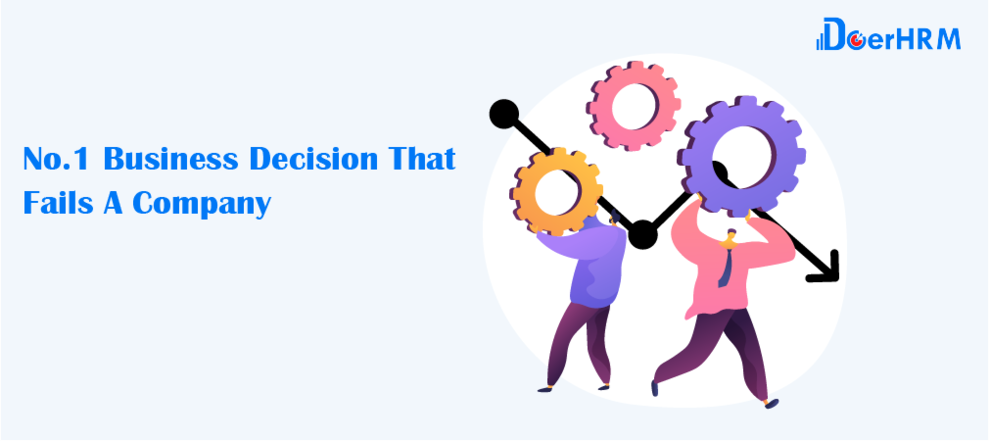Learning from Mistakes: Business Decision Failures
As an entrepreneur, you know that having a business is all about decision making. A quote from Peter Drucker, “Whenever you see a successful business, someone once made a courageous decision.” In contrast, if you have made a bad business decision, then it might fail your company. It is impossible for you to make perfect decisions all the time. Thus, we are going to take the company, Blockbuster as an example to show how a business decision fails a company.
Here we are going to start with the company background of Blockbuster before we go into the rise and fall of Blockbuster. In 1982, Blockbuster was founded by David Cook as a company to supply computer software services to Texas’s oil and gas industry. However, the company was left without a strong customer base when the industry went bust. Then, David Cook was suggested by his wife, Sandy who is a movie fan, to enter the video rental business. He took several months to conduct research into the video rental industry. After that, he sold his old and gas software to its manager before he entered the movie rental business. In 1985, the first Blockbuster Video Outlet was opened in Dallas, Texas.
Blockbuster has become the top movie rental business in The United States over the next two decades. Blockbuster as the largest rental chain was the best choice for people who wanted to rent a DVD or VHS tape when they wanted to watch a movie in the past. At one time in the 90s and the early 2000s people would have spent most of their Friday nights at their local Blockbuster to browse for the hot titles. Can you imagine? Blockbuster had over 50 million members and ran over 9000 stores worldwide with revenue topping 5.9 billion dollars a year at the peak of its game. During that time, the secret of Blockbuster achieved its early success by using computers in order to ensure all of its stores were stocked with the most popular movies.
After we have gone through the rise of Blockbuster, we are now going through the fall of Blockbuster which is Blockbuster has made a bad decision that blocks itself out. Blockbuster had decided to walk away from the deal of the century which it refused to deal with the new start-up, Netflix. Back in 2000, Netflix had started as a DVD mailing service which was renting DVDs to their customers on the internet and delivering them over the mail. Nevertheless, Netflix kept losing money as although they envisioned streaming early on, the technology to make it possible was still not available. Hence, Netflix co-founder, Reed Hastings and Marc Randolph decided to take their company to Blockbuster and offered it for sale for the low price of 50 million dollars. They kept trying for months to get a meeting with Blockbuster executives.
However, Randolph recalls that Blockbuster CEO, John Antioco was trying not to laugh when they proposed a joining of forces, pointing out the weaknesses in Blockbuster’s approach and also Netflix’s vision for the future of entertainment. With such a low price to acquire Netflix, John Antioco did not even make a counteroffer and made a decision to believe that online businesses weren’t sustainable. At that time, John Antioco did not know that this decision was the beginning of the end for Blockbuster. In 2010, Blockbuster filed for bankruptcy and their stores began to close as they are facing competition from an ever-evolving and improving Netflix and companies such as Redbox. Nowadays, Netflix has become a movie streaming juggernaut and ultimately an award-winning production company. Guess what, who is laughing now? In 2020, Netflix is valued at 194 billion dollars.
Conclusion
In almost every case, business decisions fail because the truth of the reality situation has not been fully understood by the decision maker, which is the same in this case. Blockbuster had made the worst business decision that failed the company. It could have solidified as a movie icon as well as owning Netflix outright with one decision. The business world is full of successes and failures. From this story, you can be told that even the most innovative and entrepreneurial companies can miss the mark when it comes to the decision of whether to cash in or cash out of a business opportunity.






